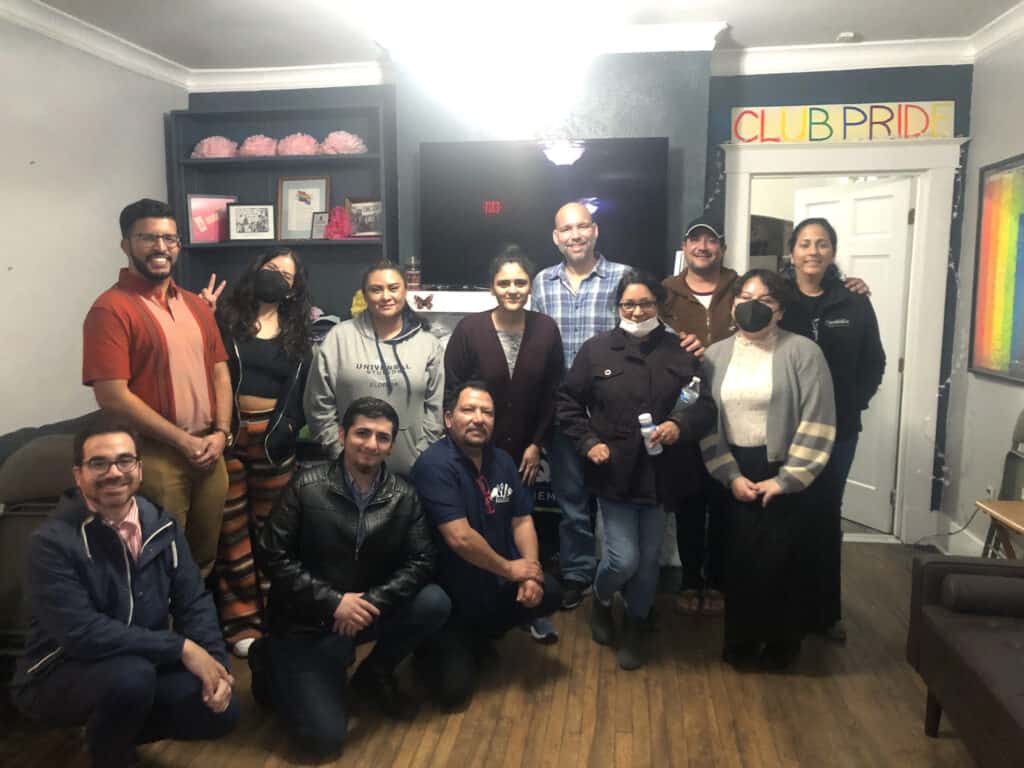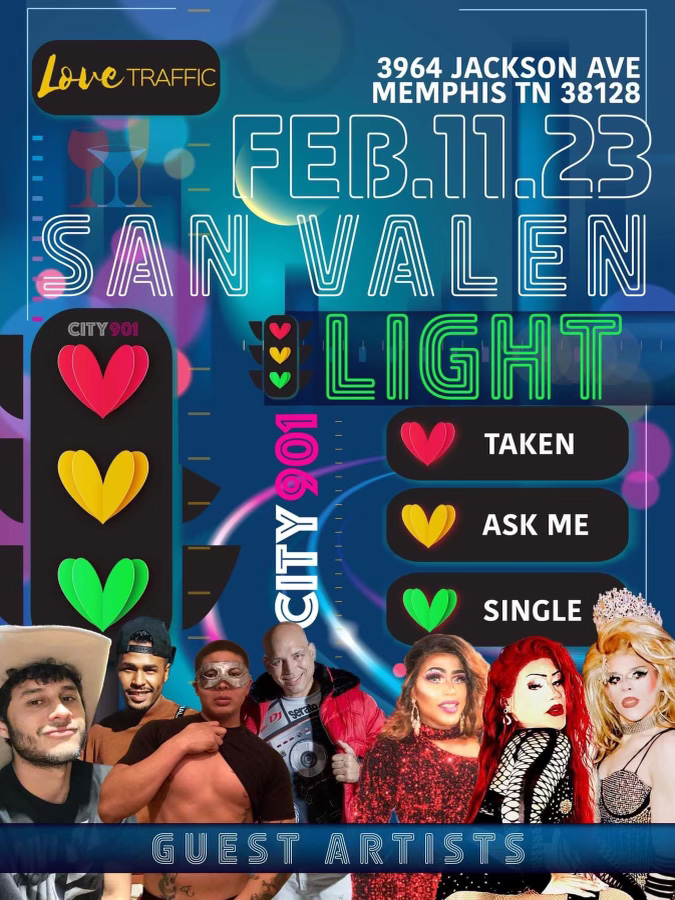(above photo: Gabby Salinas & drag artist Moth Moth Moth at the TN capitol in Nashville earlier this year, protesting the Slate of Hate)
As of mid-January, at least eight states have introduced legislation aiming to restrict drag shows, and Tennessee is among them. Instead of more legislation, the simplest solution, if parents don’t want their kids to see a drag show, is not to bring them to one or to recognize that drag performance is tailored to the audience that is viewing. But unfortunately, Senate Majority Leader Jack Johnson (R-Jackson) filed the anti-drag bill in December, saying the motivation for the bill came from reports of drag show performances where children were present. The bill, which passed the Senate in February by a 26-6 vote, limits the places where drag shows can be performed to not include public property or places where minors are present. Potentially this could impact Pride events, theater, or other public events where people perform in drag. The first offense of engaging in a performance would be a misdemeanor and following offenses would be charged as felonies.
Gabby Salinas, head of the Shelby County Democratic Party until April 1, and a scientist and health care advocate, was worried immediately after this bill was filed that communities whose lives could be affected were not aware of its potential impact. The provisions in the bill that criminalize male or female impersonation that “appeals to a prurient interest” and engaging in or performing in a drag show motivated Salinas to begin working with a few different groups on a response.
In general, she says that communication to Memphians about the impact of potential legislation in Nashville is lacking and that this issue is especially true for the Spanish- speaking community. She realized that this potential law would seriously impact at least two circles that are important to her, the Latino and LGBTQ communities, and that Memphis activist communities needed to do a better job getting information to people to increase communication and involvement.
“Oftentimes when we talk about LGBTQ+ issues, we leave out immigrant populations, and when we talk about immigrant rights and things that impact immigrants in terms of legislation we often leave the LGBTQ+ community out in those kinds of conversations.”
Gabby Salinas
In early January, Salinas helped assemble a group at OUTMemphis to discuss potential reactions and responses to the anti-drag bill. The group, which calls itself Latin Community Group, intentionally included both Spanish speakers and English speakers to encompass people that occupy one or both of those spaces. “Oftentimes when we talk about LGBTQ+ issues, we leave out immigrant populations, and when we talk about immigrant rights and things that impact immigrants in terms of legislation we often leave the LGBTQ+ community out in those kinds of conversations.” They discussed ways to build a stronger community of Latin LGBTQ+ and allies that is intentional about addressing the specific needs of that intersection.
Salinas invited her long-time friend Michelle, a Mexican trans woman, to the meeting who Salinas says is normally talkative, but who didn’t participate even though Salinas was translating for her. Salinas then realized the need for a more culturally inviting space for people who are Latinos and LGBTQ. Another meeting was planned where Salinas invited more people that she knew were allies and people that she knew were LGBTQ to come together to talk about the issues facing these communities.
Salinas realized that because the government was basically criminalizing people wearing clothes from the opposite gender, the Latin Community Group knew that this law could be used to target trans people. Potential criminal charges under the law heightened their worries. Salinas noted “who is going to be in charge of this? Obviously the police. So when we talk about immigrant populations and trans people in that population, this could mean someone getting deported. The consequences are not just a misdemeanor and a felony. Because I have a lot of LGBTQ people and immigrants who are members of the LGBTQ community I immediately thought ‘I want to make sure they’re safe.’ I knew that it was important for us to communicate what was coming down the line to them so that we knew–my community knew–that this is something that the Tennessee government is trying to do.”

Salinas says that a goal of the second meeting of the Latin Community Group was to ensure that “within all of this we were creating space for creating community along the way, because if this bill passed we’re going to need to rely on community more than ever before, to keep each other safe, to advocate for each other, to make sure that we are all safe in living in Tennessee.”
To that end, the group hosted a Latin night in January at The Pumping Station with the coordination of Gabriel Rubi, assistant manager. The Haven joined with Latin Community Group that night and provided resources for attendees. The idea of hosting another Latin-themed party/karaoke/ drag show grew out of the Latin night and the group meetings. “The idea of having fun is an intentional way of making people feel safe but at the same time delivering important information that is going to impact our community in a way that all of this is public knowledge. It is a way of meeting people where they are.”
The drag party event planned for February 11, hosted by a Latino-owned venue, will feature drag queens Lamixsi, Shiklina, and Valentina, with Alexis White as DJ and Edy Pineda and Alfredo Gomez as dancers. “I think that it is pretty obvious that people see this, that we’re creating an event that may not be possible in the future, so making that connection is not hard for people to grasp. And it just puts a magnifying glass on what’s at stake.”

Salinas says that unfortunately it is not a coincidence that the anti-drag show bill is happening at this point in time. “I think it’s very much an organized effort to say that we’re going to make y’all miserable in any way that we can and we’re going to use the levers of power to do it because we have been successful. And I think we just need to stay the course because we’re on the right side of history, and I think that history is going to look back at the other side of this in a very ugly way. We just have to make sure that we’re fighting back in meaningful ways, because I think on our side is a world that is more accepting, a world where it doesn’t matter if you’re LGBTQ+, doesn’t matter if you’re an immigrant, doesn’t matter if you have a disability. Everyone’s welcome and everyone can thrive.” And for sure that’s a world where there is drag show fun.



